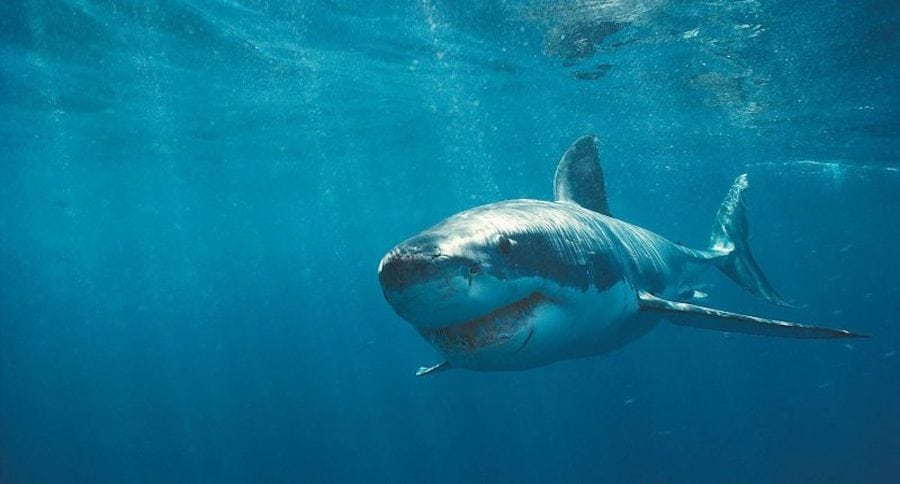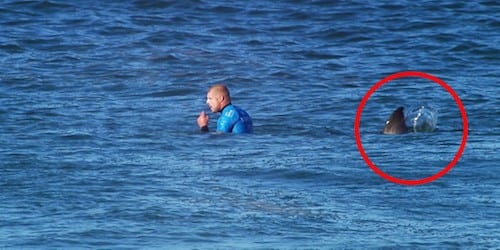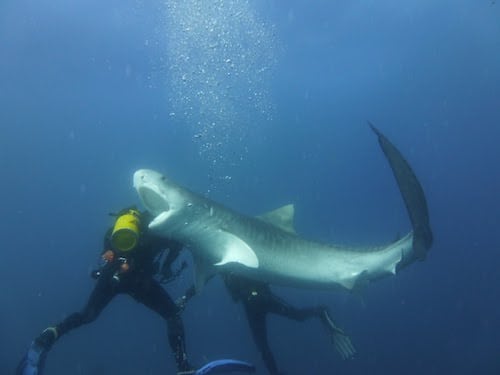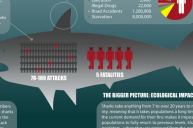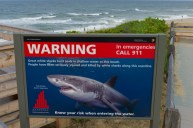When you hear about a shark attacking a person, these are the most likely culprits.
Thankfully, shark attacks aren't very common. When it does happen in the United States, though, it's usually in Florida. But attacks can and do occur all along our coastlines where marine life exists.
Most aren't life-threatening injuries, but some have lead to fatalities in recent years. The overall odds of falling victim to a shark bite are about 1 in 11.5 million, according to the University of Florida. Every year, though, there are about 65 shark attacks worldwide. And, if you do hit the shark-attack lottery, it'll likely be one of the species below.
Of all the shark attacks ever recorded, there are only three shark species that've scored triple-digit encounters with humans. When you think about it, nurse sharks, reef sharks, hammerheads and many others inhabit the murky waters along our coasts. Beachgoers have a lot to worry about, but we're going to focus on are the great white, the bull shark and the tiger shark.
The United States leads the pack in terms of fatalities and unprovoked shark attacks. Next comes the Australian waters, followed by Africa. It's here where the numbers get interesting, though, in regards to the species doing the most damage.
Great White Shark
Coming in at the top is the great white shark. Since the shark file has been kept, 314 confirmed attacks have taken place around the world. Out of those 314 attacks, 80 shark-bite incidents have been fatal and 234 have been non-fatal. Those numbers can be skewed since some alleged shark bites were only tallied to the great white because of the high shark population those areas. In other words, they only assume some attacks were a great white, but there isn't proof to be sure.
Tiger Shark
Next on the list of the big three is the tiger shark. These guys have racked up a score of 111 confirmed attacks. Of those 111, 31 have been fatal and 80 have been non-fatal. Tiger sharks are famous for being hyper-aggressive, as most of their bites are exploratory, hit-and-run-style attacks. Deep puncture wounds causing excessive blood loss cause most of the fatalities. Those who survive these encounters often live with deep tendon damage in the areas where the tiger shark bit.
Bull Shark
Finally, coming in third just at 100 attacks, is the bull shark. Bull sharks are found all over the world. With 27 confirmed fatalities and 73 non-fatal attacks, your overall odds of survival aren't any better with the tiger shark.
So, with all that being said, if you want to avoid finding yourself in the jaws of one of these sharks, stay away from Florida. Since 2007, there have been 244 total confirmed attacks. To put it into perspective, during that same time period, there have only been 65 registered in Hawaii, 39 in South Carolina, 33 in California and 33 in North Carolina, rounding out the top five. There are a lot of guesses as to why Florida has the most attacks. Many say it's due to high populations of beachgoers. Others say it's the murky water that allows for poor visibility. Whatever the reason, Florida sharks are just more prone to attack people.
Either way, its enough to keep me out of the ocean!
NEXT: THIS 1,000-POUND SHARK ALMOST SANK A FISHING BOAT
WATCH
https://rumble.com/embed/u7gve.v3tsdx/
